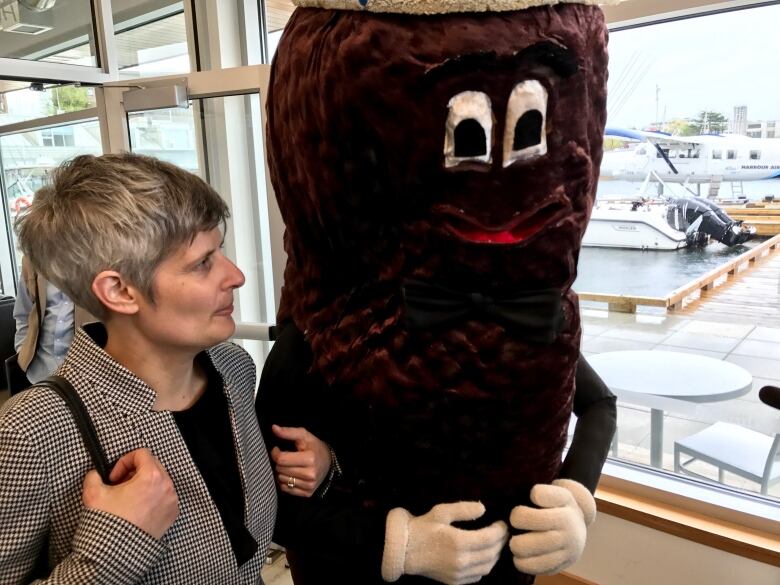Victoria mayor seeks second term, more 'civility'
Separated bike paths divide public opinion on Lisa Helps' record as mayor

Lisa Helps is hoping for a second term as Victoria's mayor in 2018 — and for less name-calling and accusations on social media.
The mayor led an ambitious and often controversial agenda of changes since her 2015 election that included securing a $60 million affordable housing funding commitment from three levels of government.
But the initiative that has generated the most division and sometimes personal attacks has been the creation of separated and protected bike lanes in downtown Victoria.
"I really hope that we have more to Victoria than 'are bike lanes good or bad,'" Helps said. "I hope the election is about the future more generally. I hope it's about affordability — all of the things we need to live well."
For 2018, Helps said her priorities include replacement of the aging Crystal Pool and the seismically vulnerable main fire hall, as well as creation of rapid transit links to the West Shore.
But she said her top priority, even before the Oct. 20 election, is "restoring civility to public dialogue."

"Social media is a really tricky one," Helps told CBC On the Island host Gregor Craigie.
While many use it to share ideas and information, she said, others use it as a place to launch attacks.
"I think the thing that's most worrisome is the way that people talk," Helps said. "Not to me, because I signed up for the job, people can say whatever they want, but the way that people talk with each other sometimes on my Facebook page."
Amid the mainly supportive responses to Helps' Facebook announcement of her plans to run for re-election, several criticized her for refusing to pledge allegiance to the Queen and for helping to move homeless campers into a building next to downtown condos.
Other comments called the mayor "dumb as a rock" and urged her to "'help' the city I was raised in, and leave."
Helps said the latest criticism of the now-$14.4 million cost of bike lanes reflects a misunderstanding of the difference between an original cost estimate for the bike lanes alone and the actual project budget, which included changes made to the project after staff incorporated public feedback.

"What we're building now is a complete street network, so new sidewalks, new crosswalks, new street trees," she said.
"What we heard through the public was, don't just do bike lanes," she said. "Fix the sidewalks, put in crosswalks, keep the parking in some cases."